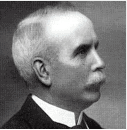When the news broke that Red-Gate had purchased SQLServerCentral, there followed a fascinating, and generally positive debate in one of their forums over the possible ramifications. It all seemed extraordinarily mature and sensible until a couple of the current advertisers on the site started to question Red-Gate’s motives. Were Red-Gate going to suppress all advertising on the site? Were any discussions that were maybe critical of Red-Gate’s products going to suddenly ‘disappear’?
Of course, it was the sort of nonsense that pops out late at night after several beers, from people innocent in the subtleties of marketing. It was the indignation at the thought that anyone should be prevented from plastering the site with advertising that puzzled me. It hadn’t occurred to me that there is an inalienable human right to do so. It is an element of Internet culture that had passed me by. I’d always thought that an advertising-free site would be a popular ambition, but here were people arguing for advertisements.
The disgruntled advertisers also seemed to think that the threat to editorial freedom was far greater from a proprietor than from an advertiser. This strange idea must surely have come from someone inexperienced in the murky world of magazine publishing.
Of course, SQLServerCentral is renowned for its robust independent viewpoint, which is what gives it its value and readability, but this is not generally true of conventional publishing. Proprietors generally wield little influence, but if the marketing/advertising department of a typical magazine gets a whiff of a good advertising account, they will generally ensure that the advertisers are ..ahem… comfortable with the content. If an advertiser raises an objection to something written in a magazine then the marketing men will generally commit any crime short of murder to ensure that their client’s sensibilities remain unruffled. This is a fact of life that soon turns magazine editors into cynical and embittered people.
A long while ago, there were a number of magazines devoted to particular brands of computer. There would be the Spectrum User magazines, the Tandy user magazines and so on. I wrote a regular monthly column on one of these magazines. We’ll call it the Whizzo User Magazine. It was owned independently by one of the larger magazine publishing companies, but the Super Whizzo Corporation used to put in a couple of full-page adverts in every issue.
Most of the time I wrote pretty uncontroversial articles. After all, I was writing technical stuff. After a while, I got slightly more reckless and eventually did a technical review of the way that a new operating system had been implemented on the Whizzo machine. It was a subject with which I was pretty familiar, having done it commercially on other types of PC several times myself. I gave it a very fair assessment, praising its good points but fearlessly pointing out all the errors that were going to cause problems for anyone buying it.
The company who had done the work didn’t like the review at all, because it was in-depth, technical, and pointed out bugs and omissions that were obvious and repeatable. It was the first time they’d done this sort of work and, sadly, their inexperience showed.
They couldn’t understand how I’d discovered all these issues with the product and concluded erroneously that the Super Whizzo Corporation had leaked confidential material to me, and so complained bitterly and vociferously to the Boss of the Super Whizzo Corporation.
The next think I knew, the editor of the magazine phoned me up in a state of shock. The boss of Super Whizzo Corporation had evidently phoned up the hapless editor and told him that unless he instantly sacked me as a contributor to the magazine, the Super Whizzo Corporation would withdraw all advertising. The editor made blustering indignant noises about his right to complete editorial freedom. The Boss of Super Whizzo stood firm. ‘You keep effing Phil Factor on, and you don’t get no effing advertising’, he evidently shouted.
The advertising team at the magazine got to hear about it, of course and I was instantly out on the metaphorical pavement with my metaphorical battered suitcase. I departed instantly, and the regular column disappeared.
I cannot find anyone to blame in this story. The editor had a sudden lesson in the myth of editorial freedom. I’d taken a risk that hadn’t come off, and the Boss of Super Whizzo Corp had decided that there was no rulebook that limited the influence that advertisers could bring to bear. Against this sort of threat both the newspaper proprietors and editorial staff were helpless.
By one of those curious coincidences that seem to dog my career, I met the two main protagonists in this drama again. A few years later, I hired, for a technical report, the man who had headed the company who had been so offended by the review and who had been responsible for the complaint. One evening, over a beer, I jovially reminded him of the previous incident over the magazine article. He could hardly remember the incident, though he vaguely remembered talking to the Boss of Super Whizzo Corp about it. He was amazed to hear the whole story.
Later still, I did some work with the Super Whizzo Corp, and got to know, and like, the Boss. He never gave me even the flicker of a hint that he remembered the incident. There was no reason why he should. It was probably a momentary tirade at the end of a stressful day, which he would have strained to remember a week later.
It has always served to remind me how careful one should be with offhand remarks spoken in anger, such as when King Henry banged the table and asked ‘Who will rid me of this turbulent priest?’. Words spoken in the heat of the moment can have repercussions that would horrify the people who uttered them. It has also served inoculate me for life from the misconception that there is any guarantee of the freedom of the press in the IT industry.





Load comments